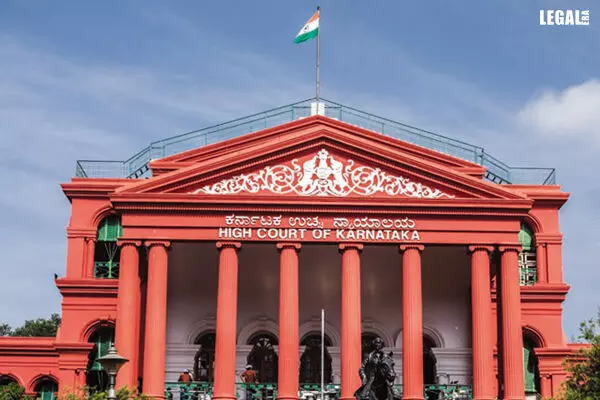- Home
- News
- Articles+
- Aerospace
- AI
- Agriculture
- Alternate Dispute Resolution
- Arbitration & Mediation
- Banking and Finance
- Bankruptcy
- Book Review
- Bribery & Corruption
- Commercial Litigation
- Competition Law
- Conference Reports
- Consumer Products
- Contract
- Corporate Governance
- Corporate Law
- Covid-19
- Cryptocurrency
- Cybersecurity
- Data Protection
- Defence
- Digital Economy
- E-commerce
- Employment Law
- Energy and Natural Resources
- Entertainment and Sports Law
- Environmental Law
- ESG
- FDI
- Food and Beverage
- Gaming
- Health Care
- IBC Diaries
- In Focus
- Inclusion & Diversity
- Insurance Law
- Intellectual Property
- International Law
- IP & Tech Era
- Know the Law
- Labour Laws
- Law & Policy and Regulation
- Litigation
- Litigation Funding
- Manufacturing
- Mergers & Acquisitions
- NFTs
- Privacy
- Private Equity
- Project Finance
- Real Estate
- Risk and Compliance
- Student Corner
- Take On Board
- Tax
- Technology Media and Telecom
- Tributes
- Viewpoint
- Zoom In
- Law Firms
- In-House
- Rankings
- E-Magazine
- Legal Era TV
- Events
- News
- Articles
- Aerospace
- AI
- Agriculture
- Alternate Dispute Resolution
- Arbitration & Mediation
- Banking and Finance
- Bankruptcy
- Book Review
- Bribery & Corruption
- Commercial Litigation
- Competition Law
- Conference Reports
- Consumer Products
- Contract
- Corporate Governance
- Corporate Law
- Covid-19
- Cryptocurrency
- Cybersecurity
- Data Protection
- Defence
- Digital Economy
- E-commerce
- Employment Law
- Energy and Natural Resources
- Entertainment and Sports Law
- Environmental Law
- ESG
- FDI
- Food and Beverage
- Gaming
- Health Care
- IBC Diaries
- In Focus
- Inclusion & Diversity
- Insurance Law
- Intellectual Property
- International Law
- IP & Tech Era
- Know the Law
- Labour Laws
- Law & Policy and Regulation
- Litigation
- Litigation Funding
- Manufacturing
- Mergers & Acquisitions
- NFTs
- Privacy
- Private Equity
- Project Finance
- Real Estate
- Risk and Compliance
- Student Corner
- Take On Board
- Tax
- Technology Media and Telecom
- Tributes
- Viewpoint
- Zoom In
- Law Firms
- In-House
- Rankings
- E-Magazine
- Legal Era TV
- Events
Karnataka High Court Upholds Sales Tax On Set-Top Boxes Provided By Cable Operators

Karnataka High Court Upholds Sales Tax On Set-Top Boxes Provided By Cable Operators
The Karnataka High Court has dismissed petitions filed by companies such as ACT, Tata Play, and Den Network, challenging the levy of sales tax on Set-Top Boxes (STBs) provided to subscribers by cable network operators. The Court upheld the Karnataka Appellate Tribunal’s decision, which ruled that the transfer of the right to use STBs for consideration qualifies as a "sale" under the Karnataka Value Added Tax Act, 2003 (KVAT Act), thereby making the levy of sales tax valid.
A Division Bench comprising Justice Krishna Dixit and Justice G Basavaraja stated that the tax authorities, possessing expertise in such matters, had determined that ₹2,000 per STB constituted the consideration for transferring the right to use the device. The Court observed that a revisional court cannot override these findings merely because an alternate view exists. It noted that the definition of "goods" under Section 2(15) of the KVAT Act was broad enough to include STBs, and their transfer to subscribers for consideration clearly fell within the definition of "sale" under Section 2(29)(d).
The petitioners argued that STBs were not goods but merely information appliances used to receive signals and that subscribers did not gain ownership of the devices. They contended that subscription charges were for activation services rather than for the use of the STBs. Additionally, they challenged the validity of the tax demand by asserting that the KVAT Act had been repealed by the Karnataka Goods and Services Tax (KGST) Act in 2017, thereby rendering any sales tax imposition invalid. They also opposed the retrospective application of a 2021 government notification that extended the tax levy from July 2017 onwards.
The Revenue Department, however, maintained that STBs are movable goods since subscribers use them to access cable services. It argued that the right to use STBs was effectively transferred to subscribers, making the transaction taxable under the KVAT Act. The department also stated that the subscription fees included charges for using STBs, and not just for activation. Defending the 2021 government notification, the Revenue argued that it was legally valid and could be applied retrospectively under the provisions of Section 174 of the KGST Act.
The Court found merit in the Revenue’s arguments, ruling that STBs qualify as goods under the KVAT Act and that their transfer for consideration amounts to a sale. It emphasized that subscribers have exclusive control over STBs, reinforcing the validity of the tax levy. Addressing the issue of the KVAT Act’s repeal, the Court clarified that the Act was not entirely nullified, as Section 174 of the KGST Act preserved certain tax liabilities. Furthermore, it upheld the validity of the 2021 government notification, rejecting the petitioners’ argument that a notification was required to activate Section 174.
On the issue of double taxation, the Court held that the levy of both service tax and VAT on the same transaction was justified, as they applied to different components—service tax on the service aspect and VAT on the sale of goods. Dismissing the petitions, the Court concluded that tax laws allow for multiple levies on a subject matter, provided each tax applies to a distinct aspect of the transaction.


